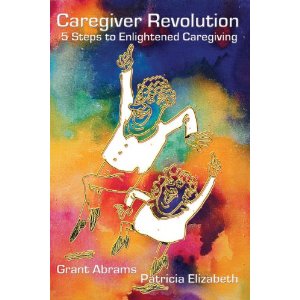Received the following email from Mark Johnson, who created one of the best and most widely watched videos in the field, Tai Chi for Seniors.
Happy New Year Grant,
I haven’t written in awhile because it seems the holidays are the only free time I have to sit and reflect on what to emphasize in my teaching schedule – so here is my New Year’s Tai Chi resolution…to write more, and to alert everyone to the importance of deep breathing.
As the decades fly by, I have become more aware of the truth of the old Chinese saying: “as you live so you breathe and how you breathe determines how you will live.”
You are all familiar with the adage “calm down by breathing deep” but do you know WHY it works? The latest discovery is that slow, deep, rhythmic belly breathing stimulates and massages your Vagus nerve which is the most complex nerve in your body. It runs down the entire length of your head and trunk, on both sides, and has access to all your major organs. Besides output to the various organs, the Vagus nerve conveys sensory information about the state of the body’s organs to the central nervous system.
Doctors have been using that information to stop epileptic seizures and recently found that stimulation of the Vagus nerve helps with depression. However, their electrical device that attaches to your neck (because the nerve is closest to the surface of your skin there) costs more than $3,000, so here is how to get the same results for nothing… breathe deep all the time.
The Vagus nerve dives deep through your diaphragm and when the diaphragm is expanded and contracted as it is when breathing deep, it stimulates the nerve constantly. So practice deep breathing until it is a constant IN ALL CIRCUMSTANCES.
It is easy to diagnose how a person lives by watching how they breathe. Short, rapid gasping breaths into the collarbone area are signs of chronic stress. Have you ever seen a person have a panic attack? All upper chest breathing is too shallow to get enough oxygen into your lungs to live a vital life.
I have also noticed that when practicing deep, belly breathing (the kind of breathing you did as a child) if the inhale is nonexistent and/or comes in spasms, you have a fear of life. If the exhale is nonexistent and/or spastic, you have a fear of death. A perfect deep breath takes about 2 seconds for the belly to expand out and 3 seconds to contract. It must also be rhythmic to make your life rhythmic or you will end up being a jerk – just like your breathing.
One of the great secrets of “My Life As Play” (get my book on Kindle) is that I have breathed deep for the past 40 years in all circumstances. When my airplane engine stopped and I flew into an industrial building, the helicopter rescue squad said I was breathing deep. The doctors the next day doing facial surgery on me said I breathed deep through the entire operation. It is one of the most useful habits a person can have.
So when practicing with my Tai Chi DVD exercises, take the deep breathing segments more seriously and your life will be long and sweet. Make 2014 a great year with deep breathing. I vow to write an article each month and I hope to see you on our next China trip.
Mark
In addition to your deep belly breathing, here is a longevity practice for you to try, Turtle Breathing Qigong. Many Qigong forms evolved from the ancient Chinese observation of animals and ones that live a long time were of special interest. Turtles live an exceptionally long and peaceful life for which they have become venerated in China. A longevity practice called Turtle Breathing developed from observing and understanding the habits of turtles. We hope you enjoy it and live a very long and happy life! http://www.qigongchinatrip.com/Turtle_Breathing_Qigong.pdf
Mayo Clinic recommends Tai Chi to help reduce stress and anxiety, and also helps flexibility and balance. “Tai chi involves a series of movements performed in a slow, focused manner. Often described as meditation in motion, tai chi promotes serenity through gentle, flowing movements.” http://www.mayoclinic.com/health/tai-chi/SA00087


